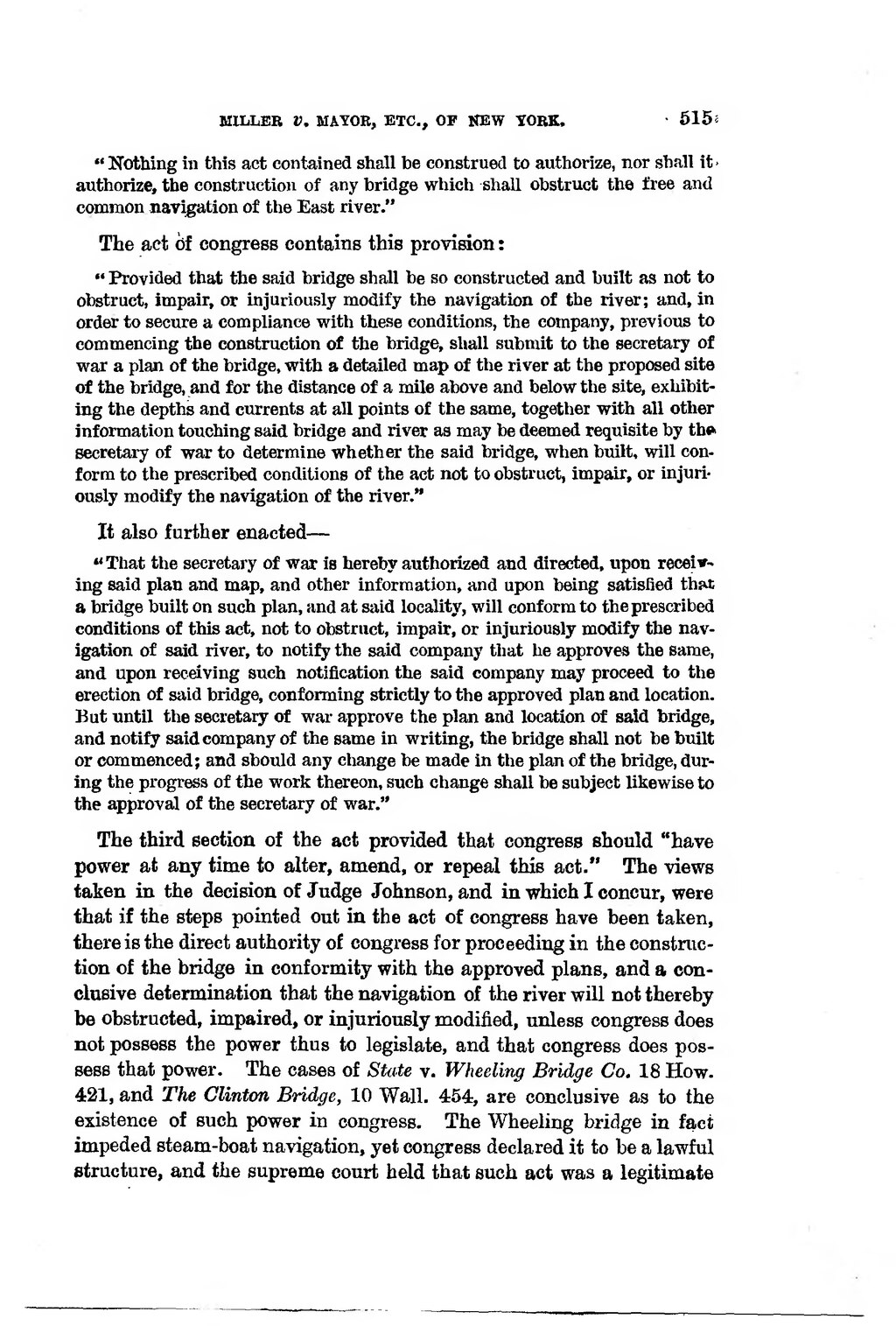MILLER V. MAYOB, ETC., OF NEW YOEK. ' 515: �" Nothing in this act eontained shall be construed to authorize, nor sball it authorize, the construction of any bridge which shall obstruct the tree and common navigation of the East river." �The act ui congress contains this provision : �"Provided that the said bridge shall be so constructed and built as not to obstruct, impair, or injuriously modify the navigation of the river; and, in order to secure a compliance with these conditions, the company, previous to commencing the construction of the bridge, shall submit to the secretary of war a plan of the bridge, with a detailed map of the river at the proposed site of the bridge, and for the distance of a mile above and below the site, exhibit- ing the depths and currents at all points of the same, together with all other information touching said bridge and river as may be deemed requisite by th«k secretary of war to determine whether the said bridge, when built, will con- form to the prescribed conditions of the act not to obstruct, impair, or injuri- ously modify the navigation of the river." �It also further enacted — �"That the secretary of war is hereby authorized and directed, upon recei»- ing said plan and map, and other information, and upon being satisfled thiit a bridge built on such plan, and at said locality, will conform to the prescribed conditions of this act, not to obstruct, impair, or injuriously modify the nav- igation of said river, to notify the said company that he approves the same, and upon receiving such notification the said company may proceed to the erection of said bridge, conforming strictly to the approved plan and location. But until the secretary of wai- approve the plan and location of said bridge, and notify said company of the same in writing, the bridge shall not be built or commeneed; and should any change be made in the plan of the bridge, dur- ing the progress of the work thereon, such change shall be subject likewise to the approval of the secretary of war." �The third section of the act provided that congress should "have power at any time to alter, amend, or repeal this act." The views taken in the decision of Judge Johnson, and in which I concur, were that if the steps pointed ont in the act of congress have been taken, there is the direct authority of congress for proceeding in the construc- tion of the bridge in conformity with the approved plans, and a con- clusive determination that the navigation of the river will not thereby be obstructed, impaired, or injuriously modified, unless congress does not possess the power thus to legislate, and that congress does pos- sess that power. The cases of State v. Wheeling Bridge Co. 18 How. 421, and The Clinton Bridge, 10 Wall. e54, are conclusive as to the existence of such power in congress. The Wheeling bridge in fact impeded steam-boat navigation, yet congress declared it to be a lawful structure, and the supreme court held that such act was a legitimate ��� �
Page:Federal Reporter, 1st Series, Volume 10.djvu/527
This page needs to be proofread.
